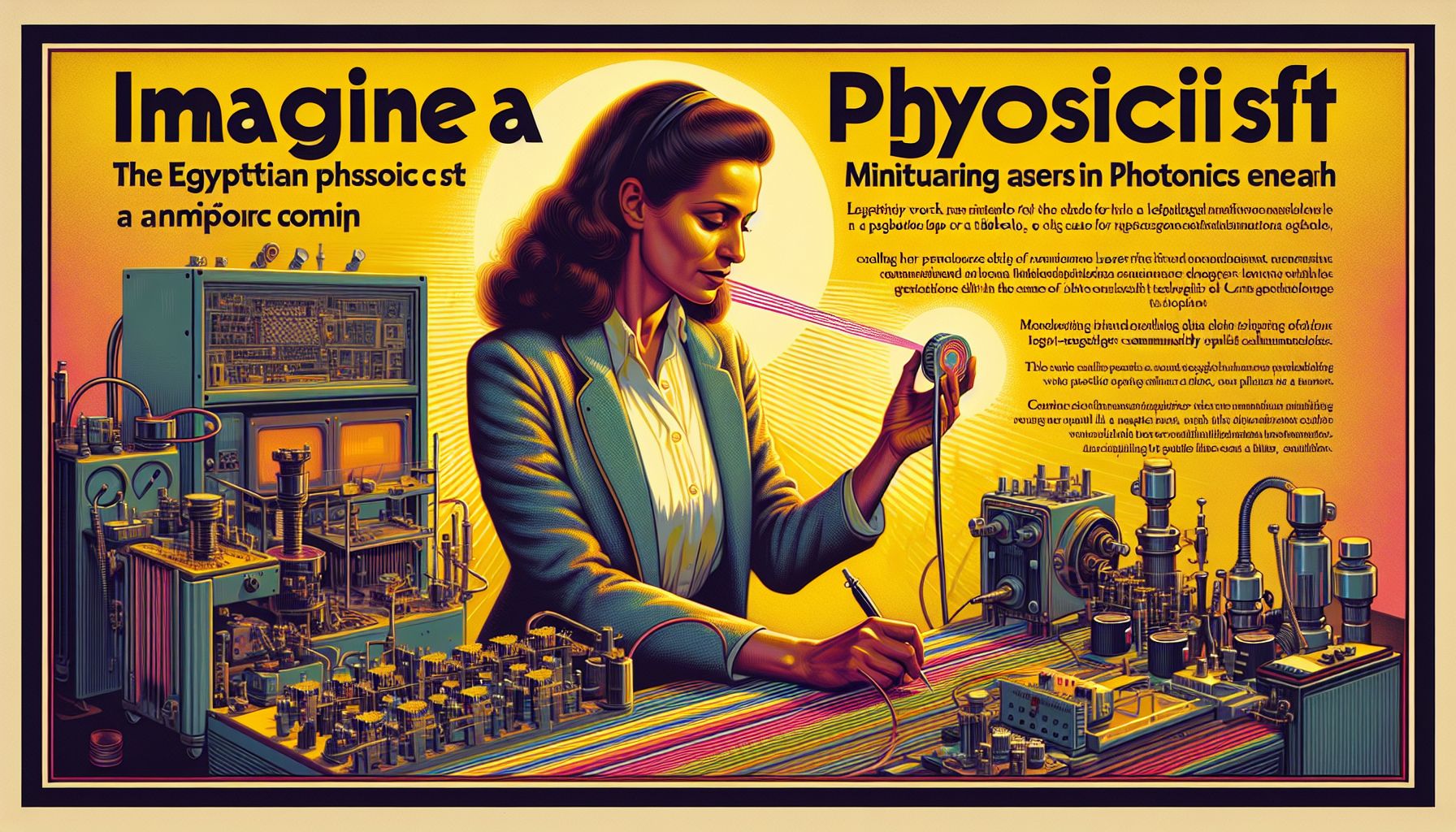Egyptian Scientist Leads Apple's Cutting-Edge Photonics Research

Eindhoven, Monday, 1 July 2024.
Elham Fadaly, an Egyptian physicist, is spearheading photonics research at Apple. Her groundbreaking work in miniaturizing lasers from tabletop to microchip scale is paving the way for next-generation communication technologies, challenging industry norms as a woman in a male-dominated field.
Revolutionizing Communication Technologies
Elham Fadaly’s research at Apple focuses on developing a material platform that integrates standard lasers onto microchips. This innovation is not merely a technical feat but a significant leap for the semiconductor industry, specifically within the realm of photonics. By miniaturizing lasers, Fadaly’s work aims to enhance the efficiency and capabilities of communication systems, making them faster and more reliable. This advancement has the potential to revolutionize data transmission, significantly impacting industries ranging from telecommunications to data centers.
How It Works
The core of Fadaly’s innovation lies in the integration of lasers with microchips, which traditionally involved bulky and complex setups. By employing a material platform that supports this integration, Fadaly has managed to shrink the size of lasers without compromising their functionality. This involves the use of photonic crystal cavities and optimized silicon-based materials that allow for high-intensity laser emission and pure single-photon generation. These advancements are crucial for developing high-speed, energy-efficient communication devices, paving the way for next-generation technologies[2].
Challenges and Triumphs
Fadaly’s journey has not been without challenges. As one of the few women in hardware technology at Apple, she has had to navigate cultural and societal hurdles, both as an Egyptian and as a woman in a predominantly male field. Despite these obstacles, Fadaly has remained resilient, leveraging her unique perspective to drive innovation. Her achievements not only challenge stereotypes but also highlight the importance of diversity in scientific research. By maintaining her cultural identity and sharing her heritage with colleagues, she bridges cultural gaps and fosters a more inclusive work environment at Apple[1].
The Future of Photonics
Fadaly’s work in photonics is positioned to have far-reaching implications. The integration of lasers on microchips can lead to more compact and efficient electronic devices, enabling advancements in various fields such as quantum computing and artificial intelligence. Moreover, her research on reciprocal topological photonic crystals could pave the way for developing photonic devices that are resistant to backscattering, thus enhancing their performance and durability. These innovations not only push the boundaries of current technology but also open new avenues for future research and development[3].
Conclusion
Elham Fadaly’s contributions to Apple’s photonics research underscore the transformative potential of integrating lasers with microchips. Her work is set to drive significant advancements in communication technologies, making them more efficient and reliable. By overcoming personal and professional challenges, Fadaly exemplifies the impact of diversity and resilience in science and technology. As her research continues to evolve, it promises to usher in a new era of innovation, potentially revolutionizing the fields of photonics, quantum computing, and beyond.

